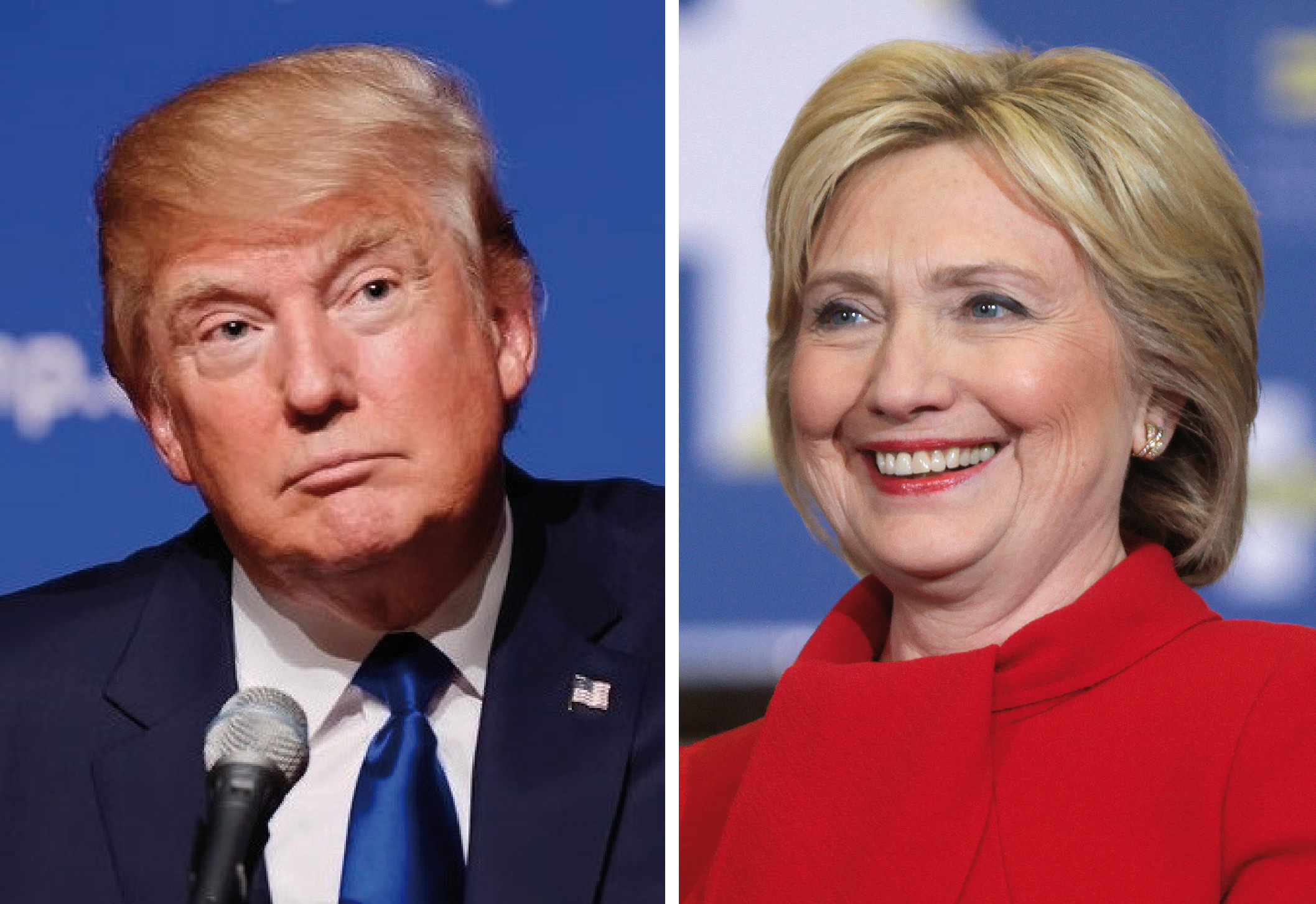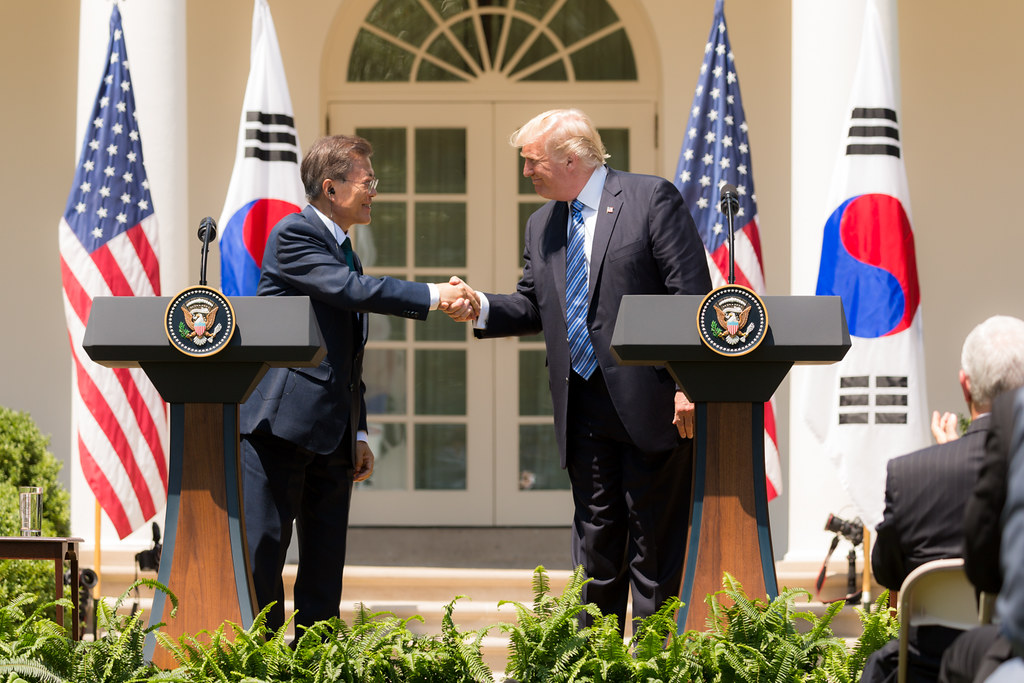As both presidential nominees travel across the US in the last weeks before the election, the world will be eagerly awaiting the results on November 8th. Perhaps there is no greater level of anticipation than in Asia where specifically Russia, South Korea, Japan and China all have much vested in the outcome. Given an opportunity, how would these countries mark their ballot? In the end, it is likely that China, Japan, and South Korea would rather hedge their bets on a Clinton presidency. Russia meanwhile has much to gain in a potential Trump win.
From a critical perspective, it seems likely that South Korea and Japan would place their bets on a Clinton presidency. Familiar with Clinton’s work as Secretary of State, Seoul and Tokyo largely expect her to continue Obama’s agenda towards China and North Korea. On the other hand, the possibility of a Trump presidency has sent shivers down the spines of both foreign ministries. Trump has repeatedly voiced his displeasure over what he sees as America’s allies’ unwillingness to “pay up” for US security, specifically mentioning South Korea and Japan in some speeches. In addition, Trump has expressed openness to negotiate directly with the North Korean regime. While some may argue that such a move is prescient, especially in a time of increasing tensions and North Korea’s refusal to forgo its nuclear program, it would likely heighten the fears of many government officials. Further, Trump has never specified what he means by allies “paying up” for their own security. Could South Korea find itself alone on the DMZ? Would Japan find itself without US support in the face of a rising China? With few specific foreign policy proposals, a potential Trump administration leaves much to the imagination. In any case, a Trump presidency would undoubtedly usher in a new diplomatic play book that Seoul and Tokyo would have to quickly confront.
Russia, for its part, has taken great pleasure in viewing the US election season from the sidelines. Frequently cast as an arch villain in the US news media (a title otherwise occupied by China), Russia has found itself pleasantly surprised by Trump’s warm words for President Vladimir Putin. A Trump win would be advantageous for Russia in many ways. Trump often has described his foreign policy as “America First”, where the US would disengage largely from areas of the world and focus inwardly on making America “great again.” Russia, of course, is more than willing to occupy such a leadership vacuum and has embarked on an increasingly aggressive foreign policy in recent years. However, the situation for Russia dims markedly with the election of Hillary Clinton. While Putin has harbored a distaste for President Obama, his dislike of Clinton has been rumored to be high since the days of the 2011 military intervention in Libya. In Putin’s perspective, this act was a jarring violation of state sovereignty that can be traced back to Secretary Clinton’s role in the intervention. In a Clinton White House, relations between the two would likely remain frosty, barring some unforeseen reversal of the situation in Ukraine or Syria. After all, it was under Clinton’s watch that the famed “Russian Reset” was unveiled but failed to gain traction.
Meanwhile, China has many reasons to worry over both a Trump and Clinton presidency. Since the days of Hillary’s Beijing speech on the rights of women in 1995, Clinton has demonstrated her willingness to confront China on its human rights record. Upon her taking office, Beijing expects a renewed dialogue on human rights initiatives and political freedoms. In addition, Clinton has been a steadfast advocate of Obama’s “Pivot” or “Rebalance” to Asia as well as voiced tentative support in the past for the Trans-Pacific Partnership (TPP). Although China has expressed interest in the TPP, it would run counter to China’s economic prerogatives for the region. Trump, on the other hand, presents a dual sided quandary to the Chinese government. While having clips of Trump bashing China is helpful to spurring nationalistic fire, Beijing is also deeply worried of the possible instability that a Trump White House would present. What if Trump decided that America would wage economic warfare against Chinese made goods? A trade war would result in massive unemployment and likely social and political unrest, something the Chinese government has been aptly skilled in avoiding during its remarkable economic rise. In the interest of ensuring stability, Beijing would likely cast its vote for Clinton.
The result of the November presidential election may result in a drastically different American presence in Asia. A Trump presidency would likely see a retrenchment of US involvement and potential decrease in US-China cooperation. Facing a more isolationist US, Japan and South Korea would be forced to reevaluate their long standing reliance on US security guarantees. Russia, meanwhile, would inevitably take advantage of the emerging power vacuum and gladly expand its influence in the region. While perhaps Trump might tone down his campaign rhetoric upon reaching the White House, there is the significant possibility that he would indeed follow though on many of his campaign promises, resulting in a vastly different US presence in Asia. On the opposing angle, a Clinton administration would most likely continue on the same path as Obama’s Asian policy. While it is almost certain that she would harbor a more critical stance towards China and Russia, it is unlikely that her administration would result in any major reversal of US involvement in the region.
- Yemen Crisis: Has a Turning Point Been Reached? - February 8, 2018
- Monster Viruses and Dangerous Diseases: How Climate Change Threatens to Upend Global Health - February 8, 2018
- Uncertain Trajectory: Kazakhstan’s Perilous Path on the World Stage - November 1, 2017






